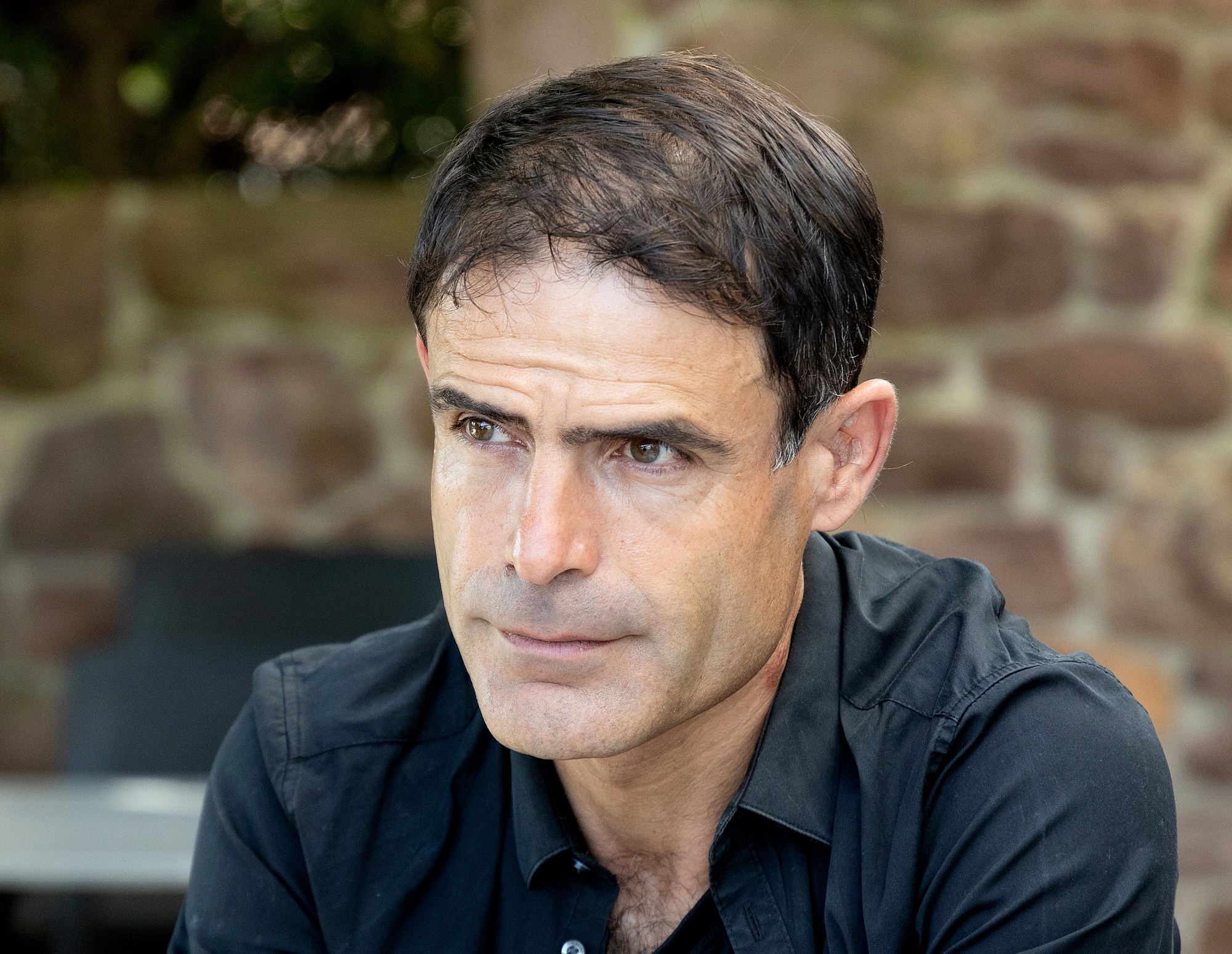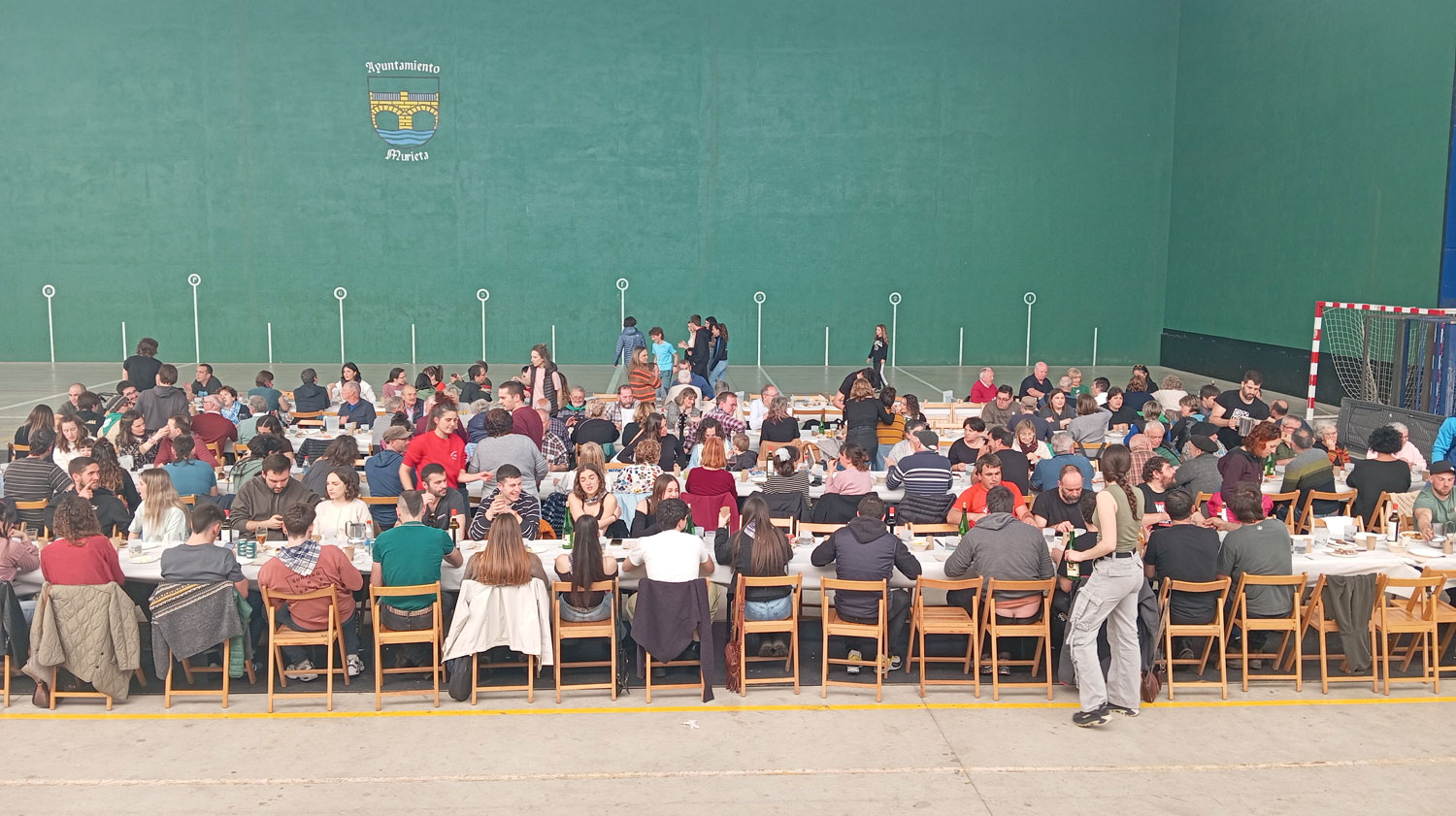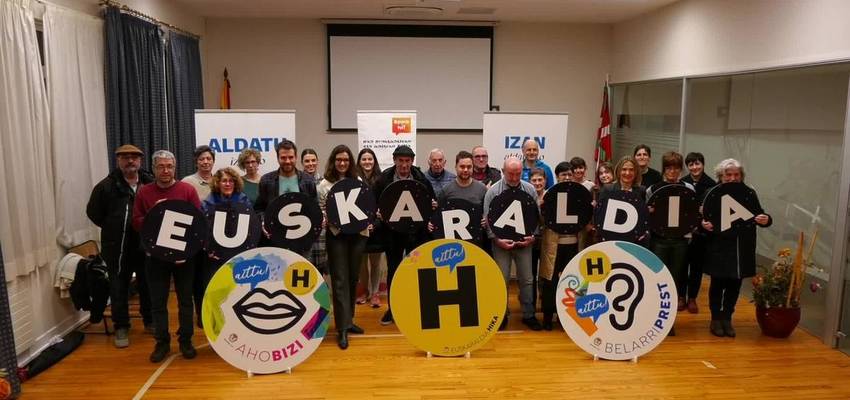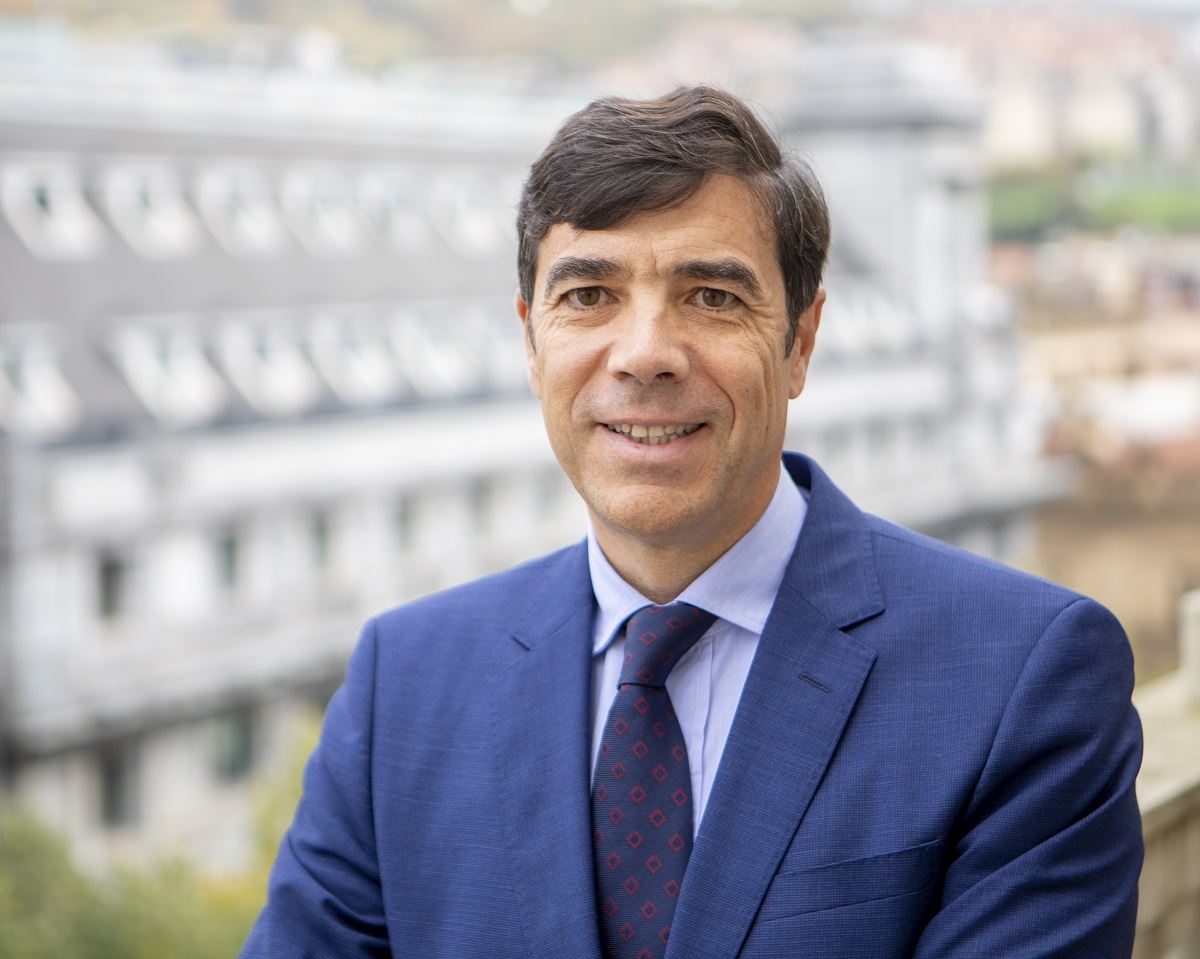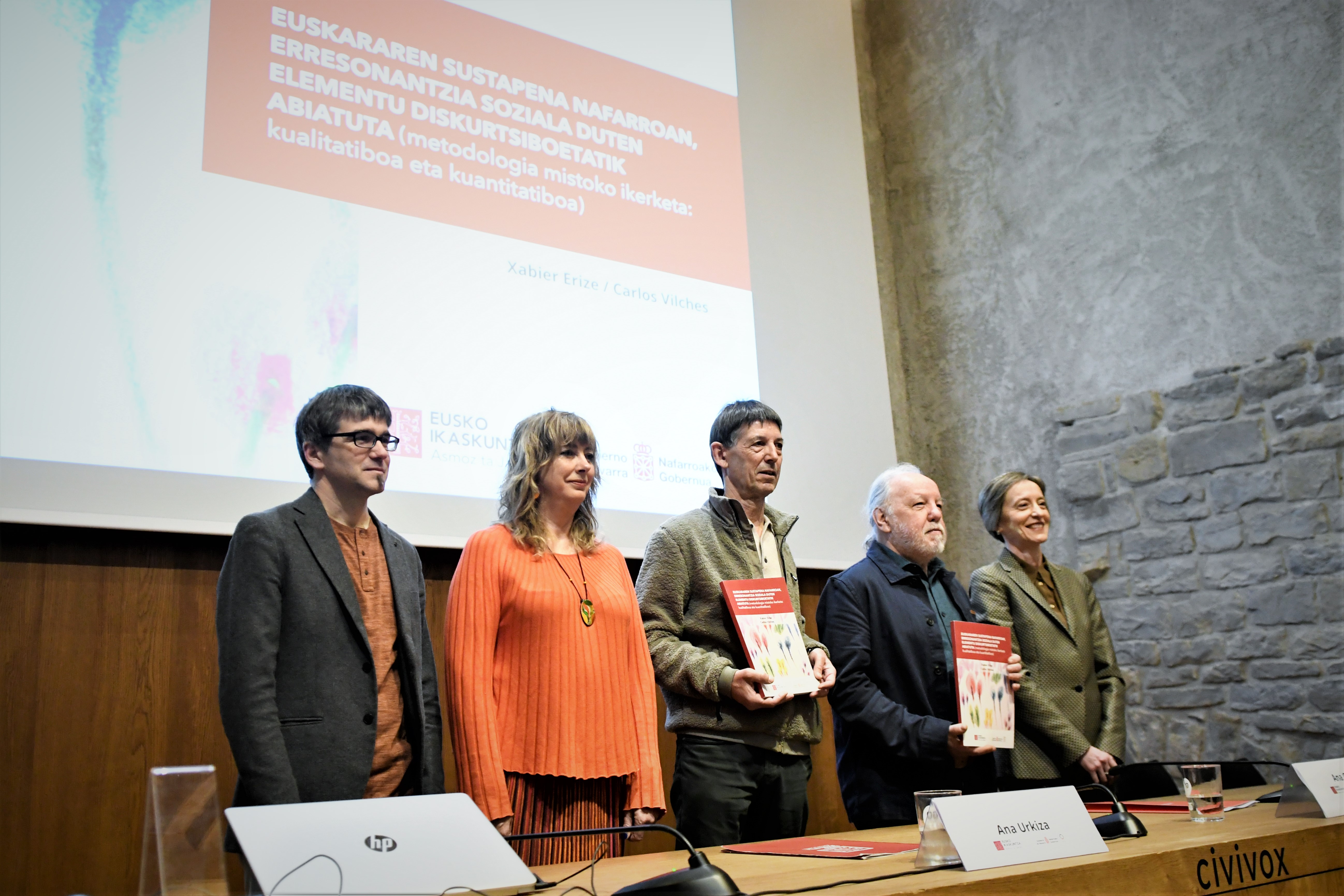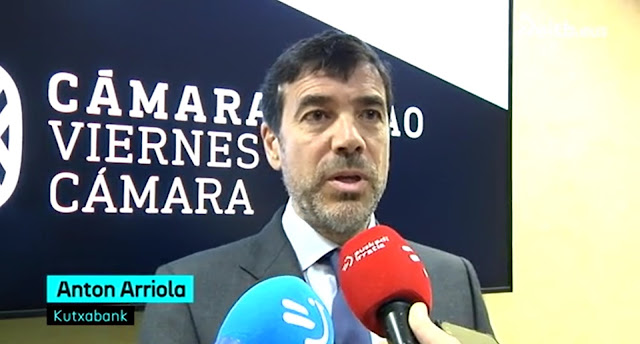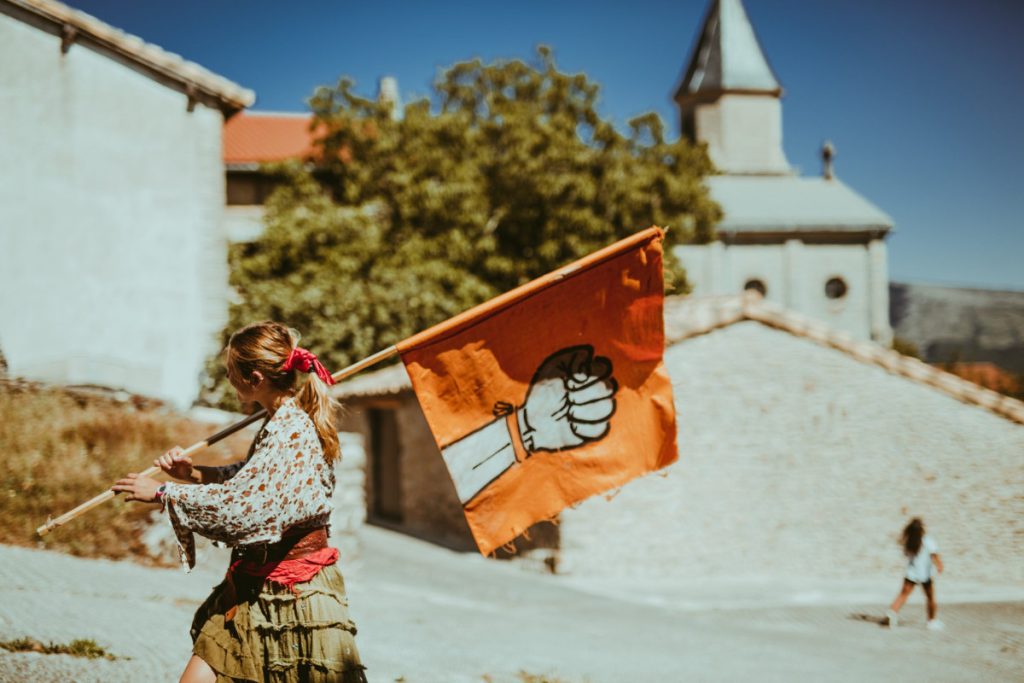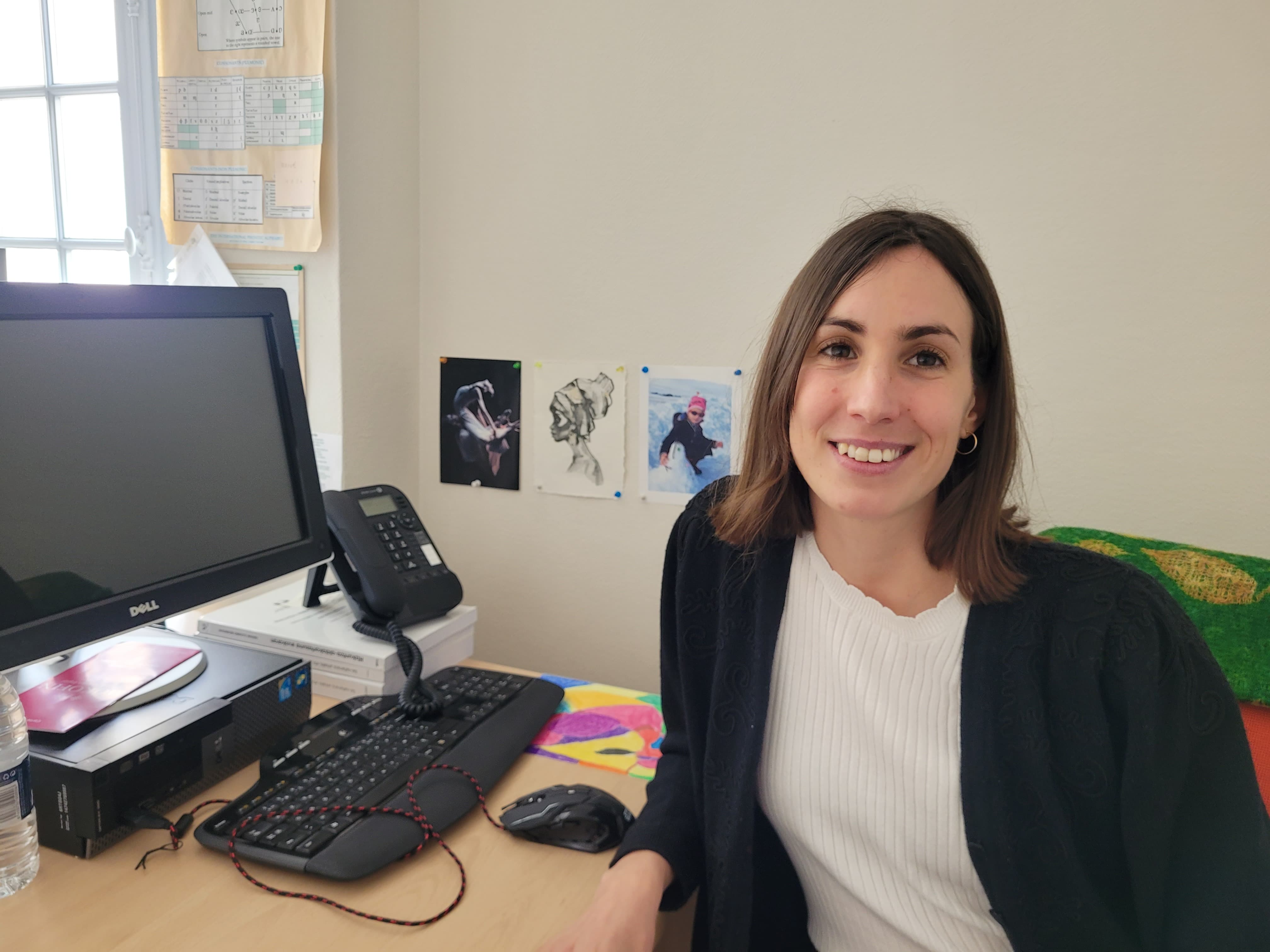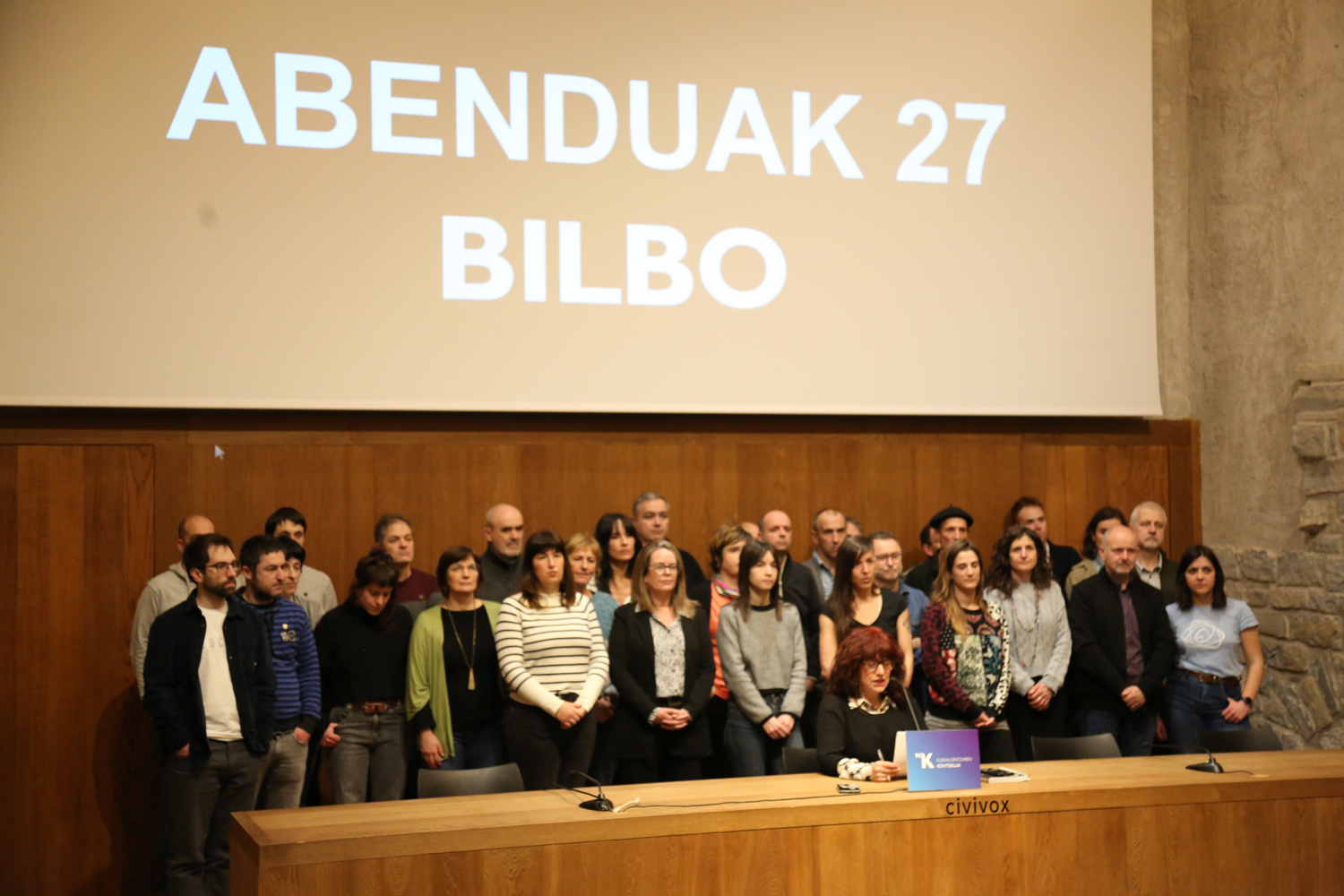Bingen Zupiria agrees with major Spanish-language media on subsidies for the promotion of the Basque country
- ARGIA has learned that the Minister of Culture and Linguistic Policy, Bingen Zupiria, met on 14 September at the Instituto Cervantes de Bilbao with directors of Vocento, Deia or El Mundo, among others. One of the people attending the meeting assured ARGIA that there were grants for "bilingual" media to promote the use of the Basque language, among others.

The CAV is the community of the Spanish State that provides less information on the origin of the COVID-19 infections. The Basque Government has determined only 5.4% of the source of the contagion, of which “2.6% have occurred in health or socio-health centres, 1.6% in “others” and 1.3% in “workplaces”.
.jpg)
According to the Basque Government, 94.6% of all other infections originate in CAV and are "unknown". The agents of Osakidetza, for their part, ask the public that it has tested positive, among other things, about the possible place of infection. Existence of data, therefore. On the basis of this intuition, the ARGIA Research Group has sought this information and, after several weeks of effort, has managed it at the beginning of December. Osakidetza no, this information is held by the Civil Protection Plan Advisory Council (LABI), chaired by Urkullu, which in its report collects the identification of COVID-19 positive and cross-analysis of contact data. The report collects data from the population that tested positive: first name and last name, date of infection, place of infection... as well as the relationship of “risk contacts” (people who have been more than 15 minutes or without a mask) they had within 72 hours before the positive was emitted.
The LABI report collects thousands and thousands of data, the analysis is going to take a lot of work, we will have to wait weeks to learn the overall results. However, the reading of the data has surprised us by offering other very significant information.
The positive of Bingen Zupiria and his contacts
The spokesman for the Basque Government and Minister for Culture and Linguistic Policy, Bingen Zupiria, gave a positive reaction on 15 September. The detectives contacted him to ask him about the contacts at risk and to avoid possible cases of contagion. Among other things, Zupiria explained to the crawlers that on 14 September at 15:00 hours he had a long meeting with six people at the headquarters of the Instituto Cervantes in Bilbao. “L. Enríquez, A. Aldekoa, J. Izarra, I. González, J.M. Gastaca and J.J. The Minister of Language met with “Baños”. In other words: The Vocento Group –El Correo, El Diario Vasco, ABC...–, with the directors of EITB, El Mundo, Deia and Grupo Noticias, respectively. There is no reference to such an important meeting in public information on the public office agenda provided by the Basque Government irekia.eus. However, it provides detailed information on the above quote.
Zupiria met with the directors of the Vocento Group -El Correo, El Diario Vasco, ABC...-, of EITB, El Mundo, Deia and Grupo Noticias
In Donostia with media in Basque “displaced”; in Bilbao with bilingual “non-displaced”
Hours before, Zupiria was the rapporteur for the Communication in Basque in the years 2020 of the summer course of the UPV/EHU. It was he who closed the address of the table and thus concluded his speech, with the representatives of the media in Basque at the same time, as listeners: "The media in Basque are too focused on political and ideological positions," he added. He set as an example the information treatment that the media in Euskera have given to the collapse of the Zaldibar landfill and the policies of the Basque Government in the face of COVID-19, noting that “great discomforts” have been created in the Basque Government. After saying a few words, he left immediately, before starting the debate and the question, after apologizing for the “need to be in Bilbao”. Did Zupiria give the same thought to the media that met in Bilbao?
ARGIA spoke to one of the people who took part in the Bilbo meeting. “We also talk about Euskera. In particular, we wanted to put on the table the economic support that we deserve the main Spanish-language media for being pioneers in the promotion of the Basque country,” he explained. According to the source, the director of Vocento started the meeting: “He gave a revealing piece of data. In the last decade, the Castilian media has multiplied the presence of the Basque Country, doubling those who have done less (from 1% to 2%) and the most tried (from 0.3% to 1.5%). However, those who speak exclusively in Euskera have not increased the presence of Euskera in any part of their media. And all of this we have done without politicizing the Basque country and without slipping it politically and ideologically”.
"The Castilian media has increased the presence of the Basque Country in the last decade, doubling those who have done less (from 1 to 2%), or even the most tried (from 0.3 to 1.5%)."
.jpg)
Law for free learning of the Basque Country and free time
The Basque Government and representatives of non-integrated media agreed on two measures at the meeting, according to the source of ARGIA. On the one hand, the subsidies they will receive for participating in the Basque Country were detailed: “We set a sum of money for each character published in Euskera, symbolic, to somehow express our gratitude. EUR 37 per character. For example, for a 4,000-character article, EUR 54,800. It may seem a lot, but taking into account the expenses – to call an open competition, to hire a Basque, to pay the finiquito at the end of the article, to pay the company that corrects it … – you end up with the baton. If you don’t have losses, but Euskera deserves that and more.”
"We agreed that to boost Euskera, the next EITB Maratoia would be used to raise funds to learn Euskera for free"
The second measure was linked to a concern. In November the Basque Parliament voted the Basque law on the right to learn Basque free of charge. The same law was passed in the previous legislature with the vote in favour of the PNV and, although no steps have been taken since then, the bilingual media "non-displaced" were concerned about the consequences that a new approval might have. “The Euskaldunization of society can lead to a loss of readers,” the source explained. “But we all agreed that the administration cannot impose Euskera on citizens by forcing free voluntary learning. What the Administration has to do is give the citizens the opportunity to give money to promote the Basque administration, from the pocket of oneself, from the bottom up and in a participative way”. Based on this idea, it was agreed, on the one hand, that to avoid impositions, the PNV would vote against the law on November 19 and, on the other hand, that the next EITB Maratoia would be destined to raise money to learn Basque for free. “We wanted to use this year’s Marathon to do so, the Basque Country is worth it, but it was already decided that this year we wanted to give citizens the opportunity to strengthen public health through private contributions in the fight against COVID-19. Euskera is worth it, but also life, and that’s why we decided to leave it for the 2021 Marathon.”
On 19 November the law was voted on in the Basque Parliament and the PNV voted against, together with PSE, PP-Citizens and Vox, respectively. PNV parliamentarian Aitor Aldasoro stated that he thought it "sterile" to limit "the debate on Euskera today" to gratuitousness. The following day, November 20, Euskaraldia began.
Aberri Eguna elkarrekin ospatzeko xedez sortu zen Euskal Herria Batera plataforma. Aurten, ikusgarri bat eskainiko dute apirilaren 11n, Manex Fuchs antzerkilariaren, Lorea Agirre idazlearen eta Martxel Rodriguez dantzariaren eskutik.
Gozamen aparta bezain deskribatzeko zaila dakar, norbaiten hitzak irakurri edo entzun ostean, zera pentsatzeak: “Horixe zen neu aurreko hartan azaltzen saiatu nintzena!”. Idazlea eta itzultzailea da María Reimóndez, eta galegoz aritzen da, hizkuntza... [+]
From linguistics or glotophobia and, of course, hatred against Basque, we have often seen our Basque become the dandruff of all sticks. Last of all, the president of Kutxabank, Anton Arriola, has been shaking our language and giving us galantas.The President of Kutxabank,
... [+]
Don't make a fuss, don't confront, don't victimize... and obey. As oppressed subjects, in this case as Basques, we talk, how many times have we had to listen to them? Ironically, two years ago, at the Euskalale Independentiston Meeting, Esne Arzallus said: "We have arrived here,... [+]
Euskal hizkuntzalaritza esperimentaleko katedra berria estreinatu dute Baionako fakultatean.
Bilbon eginiko aurkezpenean iragarri dute ekitaldia, euskarari "arnas berri bat emateko eta behar duen indarraldia gorpuzten hasteko" lehen urratsa izango dela nabarmenduta. Euskaltzale guztiei, baina, oro har, "justizia sozialean eta gizarte kohesioan aurre... [+]









